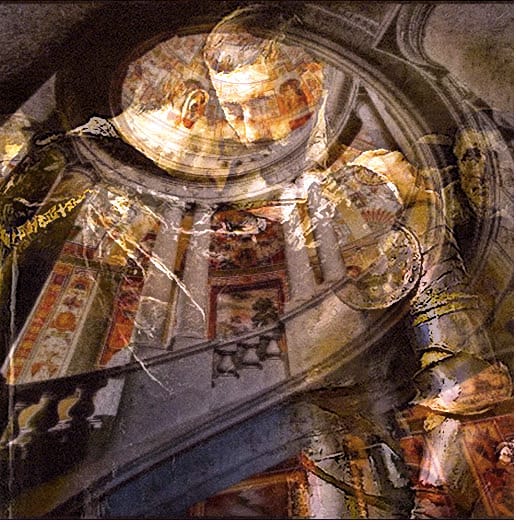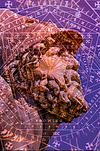Buddha Nature in Acadian Song Lyric and Verse: Cajun Dead and World music song catalogue
Modern Acadian poetry continues to evolve, blending ancestral traditions with contemporary realities. This translation of spiritual text .

The Art of Acadian Poetic Translation in Contemporary Literature
Modern Acadian poetry continues to evolve, blending ancestral traditions with contemporary realities. This translation of a modern spiritual text into Acadian verse demonstrates how our mother tongue can express universal concepts of healing and inner reconciliation.
Original English Lyrics and Their Deep Symbolism
An intro to Buddha nature within to get us all on the same page. They go on and get us through (the thick and thin). Go go on leap right off your feet and where they been Things ain't what they are (from afar to here)
Here in the moment and the words spoken to hear Tell a different story of (love and not glory whore) How did I not see this before as Influencer du Jour Just gets on and (walks on in through the door) Just be as you are not near or way too far to see Be here be so you be you and (I be keepin' on with me)
Put the PTSD be gone from the Daily page; Ferris wheel feedback loops and loopback (feeds to the cycle in the chain a pain) to be rid get of; to be done, done, gone and a goin' on the be a rid of the (ramblin' rant and rage a blowin) Close to my heart the best of places to meet, greet and then start to gettin all on the same page Outro
Symbolic Analysis of the Original Text
The opening invocation of "Buddha nature within" establishes a spiritual foundation that transcends religious boundaries. This isn't about converting to Buddhism—it's about recognizing the inherent peace and wisdom that exists within every person, regardless of cultural or religious background.
The phrase "get us all on the same page" carries profound communal significance. In Acadian culture, community harmony has always been essential for survival. This line suggests that inner peace leads to collective understanding—a concept deeply rooted in our cooperative traditions.
"Leap right off your feet and where they've been" symbolizes the courage to abandon old patterns and limiting beliefs. The repetitive "go on" creates urgency, mimicking the internal voice that pushes us toward transformation despite fear.
The parenthetical phrases throughout the text function like whispered asides—the honest internal dialogue we rarely voice. "(thick and thin)" acknowledges life's inevitable hardships, while "(from afar to here)" suggests the journey from external seeking to present-moment awareness.
"Influencer du Jour" represents the endless parade of external authorities trying to shape our identity. The mixing of English and French here mirrors how modern life bombards us with messages in multiple languages and cultural contexts.
The "Ferris wheel feedback loops" metaphor brilliantly captures the cyclical nature of trauma and negative thinking. Like carnival rides, these patterns seem exciting at first, but eventually make us sick. The "chain of pain" imagery suggests how one traumatic thought links to another, creating an endless cycle.
The Acadian Translation
Beginning
Buddha nature in the deep heart profundo
To get us all on the same page, my world is my mundo
Go on, then, pass right through
(the thick and thin of our days)
Go, go, take the jump right off your feet
And where they've been, those feet that have walked
Things aren't what they are
(from far away to right here)
Right here in the moment, and the words spoken to hear
Tell a different story
(of love and not glory whore)
How I didn't see this before
Like the Influencer of the Day
Who goes and
(walks right through the door)
Just be as you are, not too close nor too far to see
Be here, be you, you are
(and I keep on with myself)
Put the PTSD on the daily page
Big wheel of feedback loops and loopback
(feeds the cycle in the chain of pain)
To get rid of it, to be finished, finished,
gone and going
To be rid of the
(rambling rant and rage that blows)
Close to my heart, the best place to meet,
Greet and then begin
to all get on the same page
Outro

Language: Our Identity Between Two Worlds
La Langue: Mélange du français acadien avec des anglicismes naturels, comme nos ancêtres parlaient - pas pure, mais vraie à notre expérience de peuple entre deux mondes. This linguistic authenticity reflects our historical and contemporary reality, where cultural survival comes through creative adaptation rather than artificial purity.
The Symbolism of Embracing the Enemy
In this poetic work, the concept of embracing the enemy manifests through several powerful metaphors. The "Influencer du Jour" represents external forces that attempt to define our identity, but we must welcome them without resistance to transform them. PTSD, traditionally perceived as an internal enemy, becomes a necessary dialogue with our collective wounds.
The invitation to "be as you are" constitutes a revolutionary call to embrace even our shadow parts, our linguistic and cultural contradictions. By openly discussing our "ramblings" and our "rage," we transform shame into a creative force.
The Act of Speaking: Breaking Ancestral Silence
The poem explicitly encourages the act of speaking: "words spoken to hear tell a different story." This invitation to speech represents a break from the protective silence our ancestors had to adopt to survive after the Great Deportation.
Speaking becomes an act of resistance and healing. When the text suggests to "meet, greet and then begin to all get on the same page," it proposes a community reconciliation based on authenticity rather than uniformity.
Rhythm and Cadence: The Acadian Soul in Motion
The rhythmic structure of this translation follows traditional patterns of our laments and folk songs. Repetitions, such as "(the thick and thin)" and "(from far away to right here)," create a musicality that facilitates oral memorization, thus perpetuating our storytelling tradition. Bones to Diggerido
The irregular cadence mimics the natural flow of Acadian conversation, where pauses allow emotions to breathe and enable the listener to integrate the message fully.
The Healing Power of Fragmented Speech
The original text's broken syntax—"to be rid get of; to be done, done, gone and a goin'"—mirrors how trauma disrupts normal speech patterns. This isn't poor grammar; it's an authentic expression of a mind working through pain. The repetition and stuttering reflect the way healing happens: not in straight lines, but in spirals, circles, and broken fragments that eventually form a new wholeness.
Conclusion: Poetry as Cultural Bridge
This translation demonstrates the Acadian language's capacity to convey universal spiritual concepts while preserving its distinctive cultural flavour. It proves that our linguistic identity is not an obstacle to modernity, but rather an inexhaustible source of creative inspiration.
By embracing our "enemies"—whether external or internal—and speaking our truth with our own voice, we contribute to the continuing evolution of contemporary Acadian literature.
FAQ - Acadian Poetry and Spiritual Translation
1. Why mix Acadian French with Buddhist concepts?
Spirituality has no linguistic boundaries! Our Acadian language, with its natural Anglicisms and unique way of expressing emotions, offers an authentic perspective on healing. When we translate "Buddha nature" as "la nature du Bouddha dans le cœur profond," we create a bridge between universal wisdom and our Acadian experience. It's like our grandmothers who took remedies from different traditions to heal - wisdom comes from everywhere.
2. How can this poetry aid in addressing PTSD and trauma?
Acadian poetry has always been our way of transforming pain into beauty. Our ancestors survived the Great Deportation by singing their sorrows. This modern approach does the same thing - it names the trauma ("put the PTSD gone from the daily page") and invites it to transform rather than fighting it. By speaking our wounds in our own language, we reclaim power over our story. It's not a replacement for therapy, but it can be a powerful complementary healing tool.
3. What does "embracing your enemy" mean in this context?
"Embracing your enemy" means stopping the fight against our shadow parts—our anger, our sadness, our cultural contradictions. In the poem, the "Influencer du Jour" represents all those external voices telling us how to be. Instead of rejecting them, we welcome them with curiosity. Our "enemies" also include our linguistic shame, our ancestral wounds, and our feeling of being "between two worlds." By embracing them, we discover they carry hidden gifts - our resilience, our creativity, our unique authenticity.
4. Why use a mix of French and English rather than "pure" French?
Our Acadian language is NOT impure - it's TRUE to our experience! As stated in the article, "not pure, but true to our experience as a people between two worlds." Our ancestors created this mixed language out of necessity and creativity. When we say "prendre le saut droit off vos pieds," that's exactly how we naturally speak. Forcing standard French would be betraying our identity. Our poetic "chiac" is our linguistic superpower - we can express nuances that neither French nor English alone can capture.
5. Does this spiritual approach truly respect traditional Acadian Catholic traditions?
Absolutely! This poetry doesn't replace our traditions - it enriches them. Our Acadian ancestors were already masters of syncretism, blending Catholicism with Mi'kmaq traditions and folk wisdom. The idea of "getting everyone on the same page" perfectly aligns with the community spirit of our parishes. "Buddha nature" closely resembles what we call "the divine spark" within each of us. This isn't a religious replacement - it's a spiritual expansion that honours our Acadian capacity for creative adaptation while preserving our deep roots.
